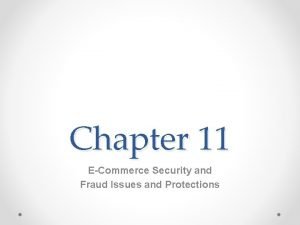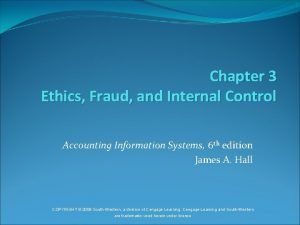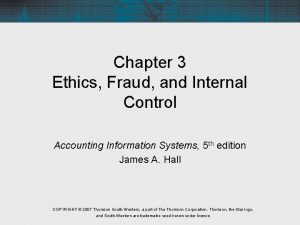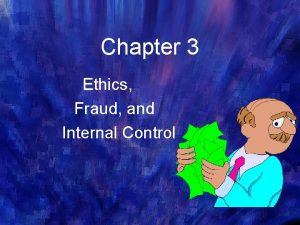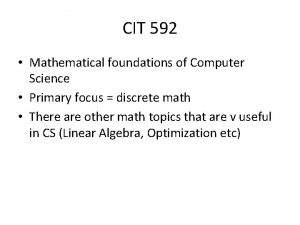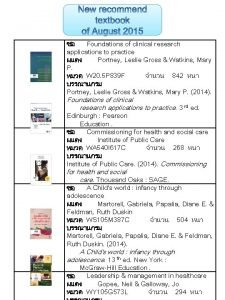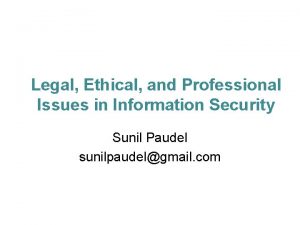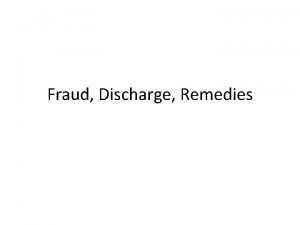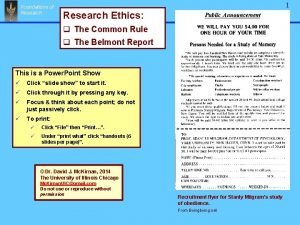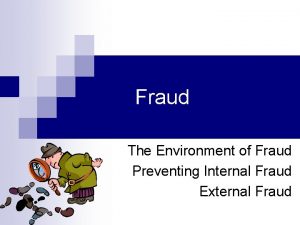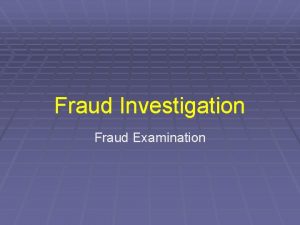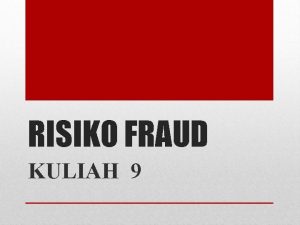RESEARCH ETHICS Foundations of Science Fraud DataRelated Issues








- Slides: 8

RESEARCH ETHICS Foundations of Science

Fraud: Data-Related Issues � Fabrication of data � Eliminating cases or data without explanation or good reason � Shopping for ‘best’ results Presenting statistical analyses that best supports hypotheses rather than those that are most appropriate � Graphic Making distortions results look more dramatic through presentation � Tampering with the random or stated method without good reason

Authorship/Publication Issues Plagiarism � Word-for-word plagiarism � Paraphrasing plagiarism � Misrepresenting work How to Recognize Plagiarism: Tutorials and Tests � https: //www. indiana. edu/~academy/first. Principles/overvi ew/index. html

Lapse in Ethics Diederik Stapel committed academic fraud New York Times Article � http: //www. nytimes. com/2011/11/03/health/research/n oted-dutch-psychologist-stapel-accused-of-researchfraud. html? _r=1&scp=1&sq=Fraud%20 case%20 seen %20 as%20 a%20 red%20 flag%20 for%20 psychology% 20 research. %20&st=cse APS Board discussion of research integrity � http: //www. psychologicalscience. org/index. php/public ations/observer/scientific-rigor. html

Authorship/Publication Issues Partial Publication versus Dual Publication � Partial Publication (with justification) Publishing parts of study in multiple places, each with different focus May only use subset of participants, certain measures � Dual Publication Publishing same work twice (not allowed)

Prevalence of Research Fraud is different from errors Difficult to quantify exact prevalence � Numbers don’t seem huge, but could be underreported Even a high-profile case can be very damaging

Safeguards against fraud Training in ethics Replication � Repositories Peer Review process � Blind review, independently reviewed by multiple experts in the field, editor makes decision

Mini-Review 1. 2. Explain the difference between word-forword plagiarism. How is the peer review process intended to reduce fraud?
 How do fraud symptoms help in detecting fraud
How do fraud symptoms help in detecting fraud E commerce security and fraud issues and protections
E commerce security and fraud issues and protections Sas 78/coso
Sas 78/coso Ethics and internal controls in accounting
Ethics and internal controls in accounting Ethics fraud and internal control
Ethics fraud and internal control Cit 592
Cit 592 What was your favorite subject as a child
What was your favorite subject as a child Foundations of clinical research applications to practice
Foundations of clinical research applications to practice Legal and ethical issues in computer security
Legal and ethical issues in computer security

